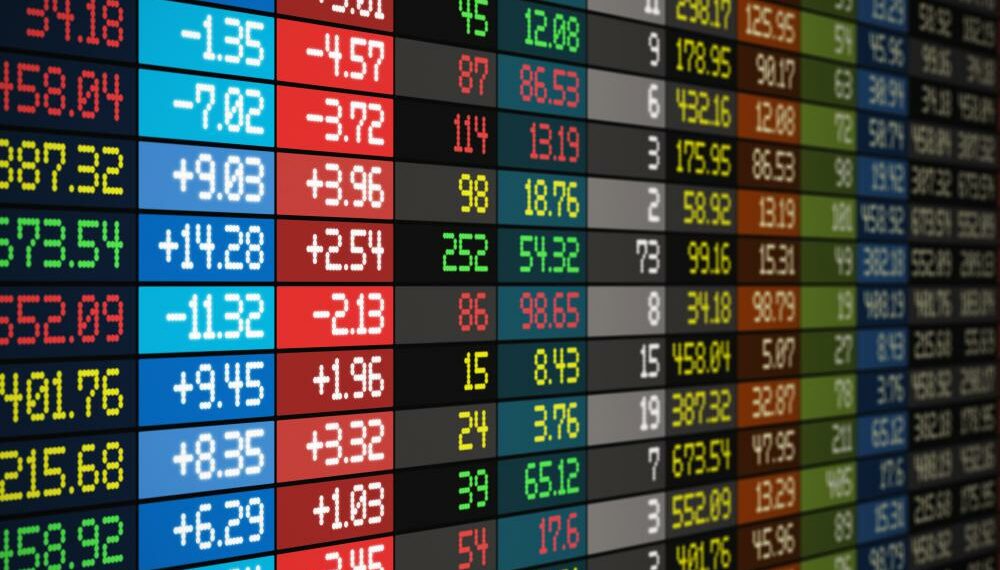GHS 3.31 Billion Wiped Off GSE Market Valuation Amid Composite Index Decline and Broad-Based Selloffs
The Ghana Stock Exchange (GSE) ended the week on a bearish note as declines in key blue-chip stocks dragged the market lower. The benchmark GSE Composite Index (GSE-CI) fell by 1.86% to close at 8,229.16 points, while the Financial Stock Index (GSE-FSI) eased marginally by 0.12% to 4,188.68 points, indicating mild weakness across financial counters.
Market capitalisation dropped by GH¢3.31 billion to GH¢163.23 billion, driven mainly by losses in MTN Ghana, Ecobank Transnational Incorporated (ETI), and CAL Bank.
Trading activity slowed significantly, with 5.47 million shares valued at GH¢19.54 million changing hands compared to 10.52 million shares worth GH¢40.65 million the previous week. MTN Ghana remained the most actively traded equity, accounting for 4.09 million shares valued at GH¢16.61 million, representing more than 80% of total market turnover.
BOPP, GLD, and GCB Lead Gainers; MTN, CAL, and ETI Decline
The week’s top gainer was Benso Oil Palm Plantation (BOPP), which advanced by GH¢2.55 to close at GH¢41.55, reflecting renewed investor interest in the agricultural counter. NewGold ETF (GLD) followed with a gain of GH¢1.13 to GH¢447.13, while GCB Bank appreciated by GH¢0.85 to GH¢17.82.
Other notable advancers included Société Générale Ghana (SOGEGH), which added GH¢0.69 to GH¢4.10, CLYD (+GH¢0.11), and Ecobank Ghana (EGH) (+GH¢0.06).
On the losing side, MTN Ghana declined by GH¢0.15 to GH¢4.05, exerting the heaviest drag on the market. CAL Bank and ETI both lost GH¢0.09 to close at GH¢0.40 and GH¢0.90, respectively, while Access Bank Ghana shed GH¢0.01 to GH¢16.19.
Year-to-date, the GSE-CI remains firmly in positive territory, up 68.34%, with the Financial Stock Index recording a 75.94% gain.
Cedi Weakens Marginally Against Major Currencies
Meanwhile, the Ghana cedi weakened modestly against major trading currencies during the week under review. It depreciated to GH¢10.92 to the US dollar from GH¢10.90 previously, representing a year-to-date gain of 34.62%.
The local unit also traded lower against the British pound (GH¢14.37) and euro (GH¢12.64), reflecting sustained demand pressures from importers. It, however, appreciated slightly against the CFA franc, strengthening to GH¢51.89 from GH¢52.20 the previous week.
Market analysts attribute the cedi’s performance to persistent forex demand amidst limited inflows, though expectations of further disbursements under the IMF programme could support the currency in the short term.
Gold Prices Surge as Oil and Cocoa Decline
On the commodities market, gold prices rose to US$4,020.04 per ounce, marking a 53.15% year-to-date increase, as investors sought safe-haven assets amid global economic uncertainty.
Brent crude oil prices, however, dipped by 2.3% week-on-week to US$63.54 per barrel, extending losses due to softening global demand and rising inventories. Cocoa prices also retreated to US$5,911.19 per metric tonne, down from US$6,076 amid market corrections following recent highs.
Ghana Market Outperforms Regional Peers
The Ghana Stock Exchange continues to rank among Africa’s best-performing equity markets in 2025, with a year-to-date return of 68.34%. Comparatively, the Nairobi Securities Exchange (Kenya) and the Nigerian Exchange (Nigeria) posted gains of 55.55% and 45.27%, respectively.
The EGX-30 Index (Egypt) rose 34.33%, while South Africa’s JSE All Share Index advanced 29.43%. The Botswana and WAEMU BRVM markets recorded modest gains of 5.65% and 22.93%, respectively, underscoring Ghana’s strong equity market recovery from broader macroeconomic challenges.



